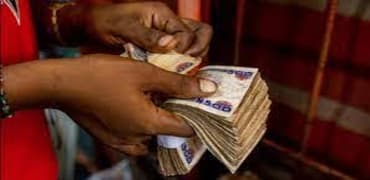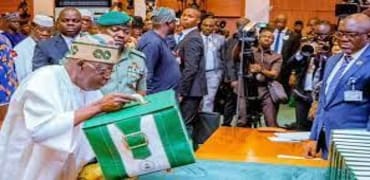IMF Warns Tinubu: Stabilization Alone Won’t Stop Hunger—Vulnerable Nigerians Need Urgent Support
IMF Warns Tinubu: Stabilization Alone Won’t Stop Hunger—Vulnerable Nigerians Need Urgent Support
By Achimi Muktar
As hunger and economic hardship deepen across Nigeria, the International Monetary Fund (IMF) has issued a strong warning to the Tinubu administration: economic stabilization is not enough—the government must prioritize direct support for the country’s most vulnerable citizens.
Speaking at a press conference in Washington, DC, IMF spokeswoman Julie Kozack acknowledged the severe financial strain many Nigerians are facing. While she commended the government’s efforts to stabilize the economy and encourage growth, she stressed that these policies must be paired with targeted social welfare programs to prevent widespread suffering.
"Many Nigerians Are Struggling"—IMF Sounds the Alarm
“The authorities’ policies to stabilize the economy and promote growth are welcomed,” Kozack stated.
“However, they must be accompanied by targeted social transfers to support the most vulnerable populations. We recognize the extremely difficult situation that many Nigerians face,” she added.
With rising food prices, inflation, and job losses, millions of Nigerians are struggling to meet their basic needs. The removal of fuel subsidies and other economic reforms, while aimed at long-term recovery, have worsened daily hardships for lower-income citizens.
IMF Pushes for Cash Transfers and Revenue Reform
The IMF has advised Nigeria to fast-track the rollout of cash transfer programs to ensure that struggling households receive direct financial assistance.
Additionally, the fund emphasized the need for Nigeria to improve domestic revenue collection—a critical step in ensuring the government has enough resources to support its citizens without over-reliance on external borrowing.
IMF Officials to Visit Nigeria for Key Economic Talks
Ms. Kozack also announced that IMF officials will visit Nigeria next week as part of the 2025 Article IV Consultation.
Under this agreement, the IMF conducts annual economic reviews of member countries, gathering financial data and engaging in discussions with government officials on economic policies and reforms.
Will the Government Act?
As the Tinubu administration works to stabilize Nigeria’s economy, the key question remains: Will vulnerable Nigerians get the urgent relief they need, or will economic reforms continue to leave them behind?
With the IMF urging immediate action, all eyes are now on the government’s next move.


















